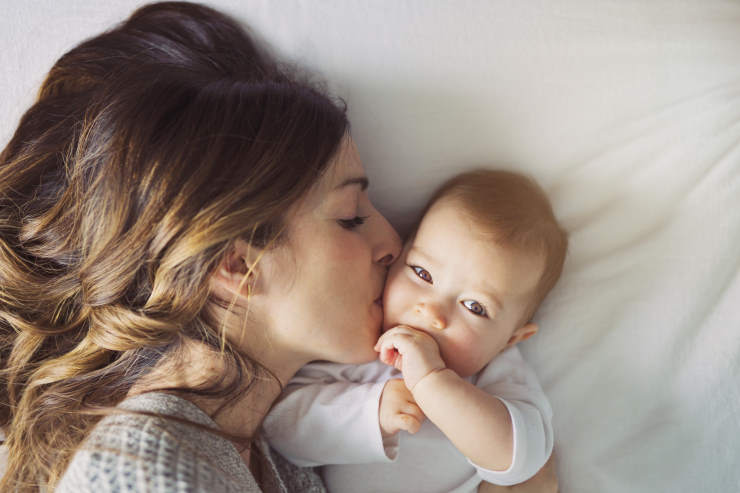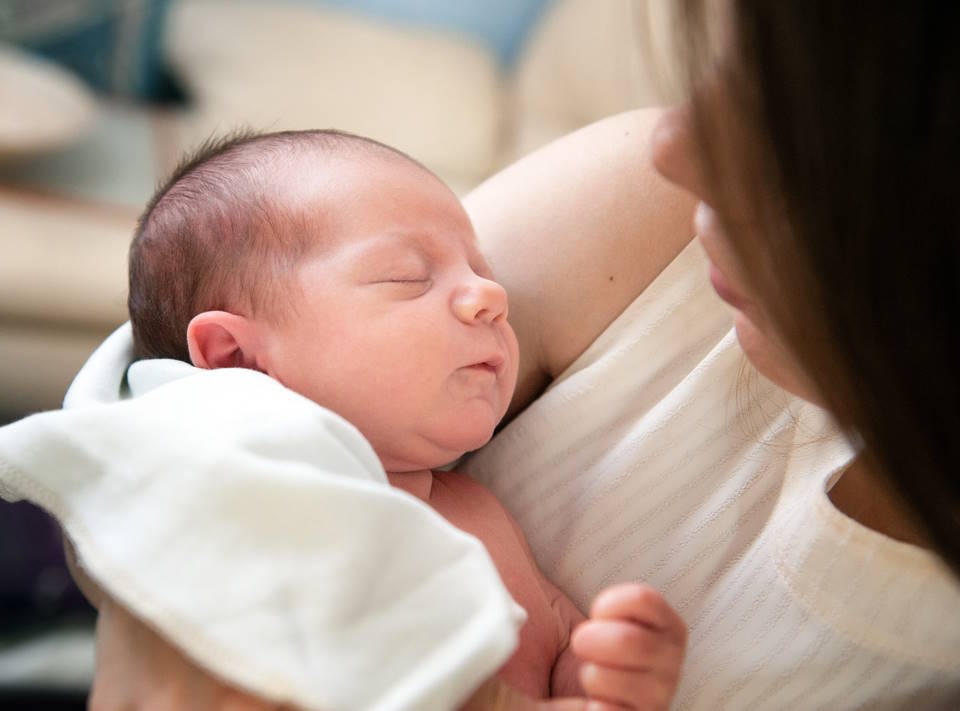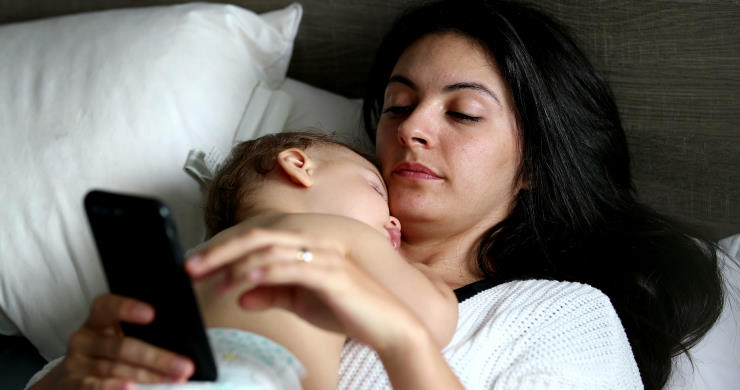As a new parent, you may have been told that the key to a happy and healthy baby is a strict 7PM to 7AM sleep schedule. But is this really necessary? And at what age should your baby start adhering to this routine? We will answer all your questions about baby sleep schedules, including tips on how to get your baby to sleep at 7AM and what the 5 3 3 rule is. Whether you are a first-time parent or are simply looking for ways to improve your baby’s sleep habits, keep reading for all the information you need.
Introduction
As a new parent, getting your baby to sleep can be a challenge. You want to make sure your baby is getting enough sleep, but you also want to make sure they are sleeping at the right time. Many parents wonder when babies should be sleeping from 7PM to 7AM. Here’s what you need to know.
The American Academy of Sleep Medicine recommends that babies aged 4 to 12 months should be getting between 12 to 16 hours of sleep per day, including naps. This means that your baby should be sleeping anywhere from 9 to 12 hours at night to meet this sleep recommendation. While most babies will naturally fall into a sleep pattern that allows them to sleep from 7PM to 7AM, every baby is different and some may need to sleep earlier or later.
- To help your baby get into a sleep routine, try establishing a bedtime routine. This can include things like a warm bath, a bedtime story, or a lullaby.
- Make sure your baby’s sleeping environment is comfortable and safe. This means using a firm crib mattress, keeping the room at a comfortable temperature, and avoiding any potential hazards like loose blankets or pillows.
- Be consistent with your baby’s sleep schedule. While it may be tempting to let your baby stay up a little later on the weekends, this can disrupt their sleep routine and make it harder for them to fall asleep.
Remember, every baby is different and there is no one-size-fits-all approach to getting your baby to sleep from 7PM to 7AM. If you are having trouble getting your baby to sleep or if you have any concerns about your baby’s sleep patterns, talk to your pediatrician.
Do Babies Have to Sleep at 7PM?
When it comes to baby sleep, there are various myths and beliefs that parents often follow. One of the most popular beliefs is that babies have to sleep at 7pm. However, the truth is that there is no specific time that all babies should sleep at. Every baby is different and has unique sleep needs.
It is important for parents to understand that sleep needs vary depending on the age of the baby. Newborns sleep most of the day and night, and their sleep patterns are irregular. As they grow older, their sleep patterns become more regular and they sleep for longer periods of time. By the time they are four months old, most babies need around 14-17 hours of sleep every day.
The timing of a baby’s sleep is also influenced by their individual circadian rhythm. This is the internal biological clock that regulates the sleep-wake cycle. Babies who naturally fall asleep earlier may thrive on an earlier sleep schedule, while those who stay up later may benefit from a late bedtime. Generally speaking, babies tend to sleep earlier in the evening and wake up earlier in the morning, but this is not always the case.
- So, do babies have to sleep at 7pm? The answer is no, not necessarily. While some babies may find it beneficial to sleep at this time, it is not a rule that all babies must follow. The most important thing is to ensure that the baby is getting enough sleep for their needs, regardless of what time they go to bed.
Some parents may find it helpful to establish a consistent bedtime routine for their baby, regardless of what time they go to sleep. This could involve bedtime stories, baths, and other calming activities that help the baby wind down for the night. By creating a consistent routine, babies may be more likely to fall asleep easily and stay asleep for longer periods of time.
| Sleep Guidelines for Babies | |
|---|---|
| 0-3 Months | 14-17 hours |
| 4-11 Months | 12-15 hours |
| 1-2 Years | 11-14 hours |
What Age Should Baby Go to Bed at 7PM?
Putting babies to sleep can be a challenge for most parents, but it is crucial to ensure that they get enough rest for their overall well-being. One of the most common questions that new parents ask is, “What age should baby go to bed at 7PM?”
The National Sleep Foundation recommends that newborns from 0 to 3 months old should sleep between 14 to 17 hours daily. As they grow older, the recommended sleeping hours decrease. For infants aged 4 to 11 months, they should have 12 to 15 hours of sleep each day. For toddlers aged 1 to 2 years, they should sleep for 11 to 14 hours daily.
- 0-3 months old – 14 to 17 hours of sleep daily
- 4-11 months old – 12 to 15 hours of sleep daily
- 1-2 years old – 11 to 14 hours of sleep daily
It is important to note that not all babies are the same, and some may require more or less sleep than what is recommended. Additionally, factors such as illness, developmental milestones, and growth spurts may also affect a baby’s sleep patterns. Therefore, parents should always tune in to their baby’s cues and adjust their sleep schedule accordingly.
| Baby’s Age | Bedtime (7PM) |
|---|---|
| 0-3 months old | Between 8:30pm to 11:00pm |
| 4-11 months old | Between 6:00pm to 8:00pm |
| 1-2 years old | Between 5:30pm to 7:30pm |
If you’re wondering whether putting your baby to bed at 7PM is necessary, the answer is no. What is important is that they get enough sleep for their age and that their schedule is consistent. However, setting bedtime routines can help babies adjust to a regular sleep schedule. This can include activities such as a warm bath, reading a story, or singing lullabies. It is also recommended to avoid screen time and stimulating activities before bed.
How Do I Get My Baby to Sleep at 7AM?
As a parent, one of the most challenging tasks is to ensure that your baby gets enough sleep. It can be frustrating when your little one refuses to sleep at night, especially when you have to wake up early the next day. What can you do to get your baby to sleep at 7AM? Here are some tips and tricks that could help.
- Establish a consistent bedtime routine: Ensure that you follow the same bedtime routine every night. This could include a warm bath, a lullaby, and a storybook. Creating a predictable and calming nighttime routine can signal to your baby that it’s time to sleep.
- Control the environment: Make sure the room is dark, quiet, and comfortable for your baby. Use blackout curtains to block out any light and use a sound machine to drown out any noise that may disturb your baby’s sleep.
- Stick to a schedule: Create a consistent sleep schedule for your baby. Try to put your baby to bed at the same time every night to help regulate their body clock. This can help your baby fall asleep faster and sleep more soundly through the night.
Remember that every baby is unique, and what works for one might not work for another. It may take some time to find the right routine and schedule that works for your baby, but with patience and persistence, you can teach your little one healthy sleep habits that will last a lifetime.
What Is the 5 3 3 Rule?
The 5 3 3 rule is a method commonly used by parents to help their children develop healthy sleeping habits. This method involves establishing a consistent bedtime routine that includes 5 minutes of winding down, 3 minutes of brushing teeth and using the restroom, and 3 minutes of reading or storytelling. By following this routine every night, children are able to associate these activities with sleep and will be more likely to fall asleep faster and stay asleep throughout the night.
The winding down period is the first step in the 5 3 3 rule and is intended to help children relax and calm down before bed. This can include activities such as taking a warm bath, listening to calming music, or practicing deep breathing exercises. By taking the time to unwind before bed, children are less likely to feel anxious or restless when it’s time to go to sleep.
- 5 minutes of winding down
- 3 minutes of brushing teeth and using the restroom
- 3 minutes of reading or storytelling
The next step in the 5 3 3 rule is the hygiene component. Children should take 3 minutes to brush their teeth and use the restroom before going to bed. This not only helps them maintain good hygiene but can also help them feel more relaxed and prepared for sleep. Additionally, going to the restroom before bed can help prevent middle-of-the-night wake-ups.
The final step in the 5 3 3 rule is the story or reading component. Spending three minutes reading a book or telling a story can help children transition from wakefulness to sleep. This can be a great opportunity for parents to bond with their children and foster a love of reading. By consistently following this routine, children are likely to develop healthy sleep habits that can lead to better overall health and well-being.
| 5 minutes | 3 minutes | 3 minutes |
|---|---|---|
| Winding down | Brushing teeth & using restroom | Reading or storytelling |











